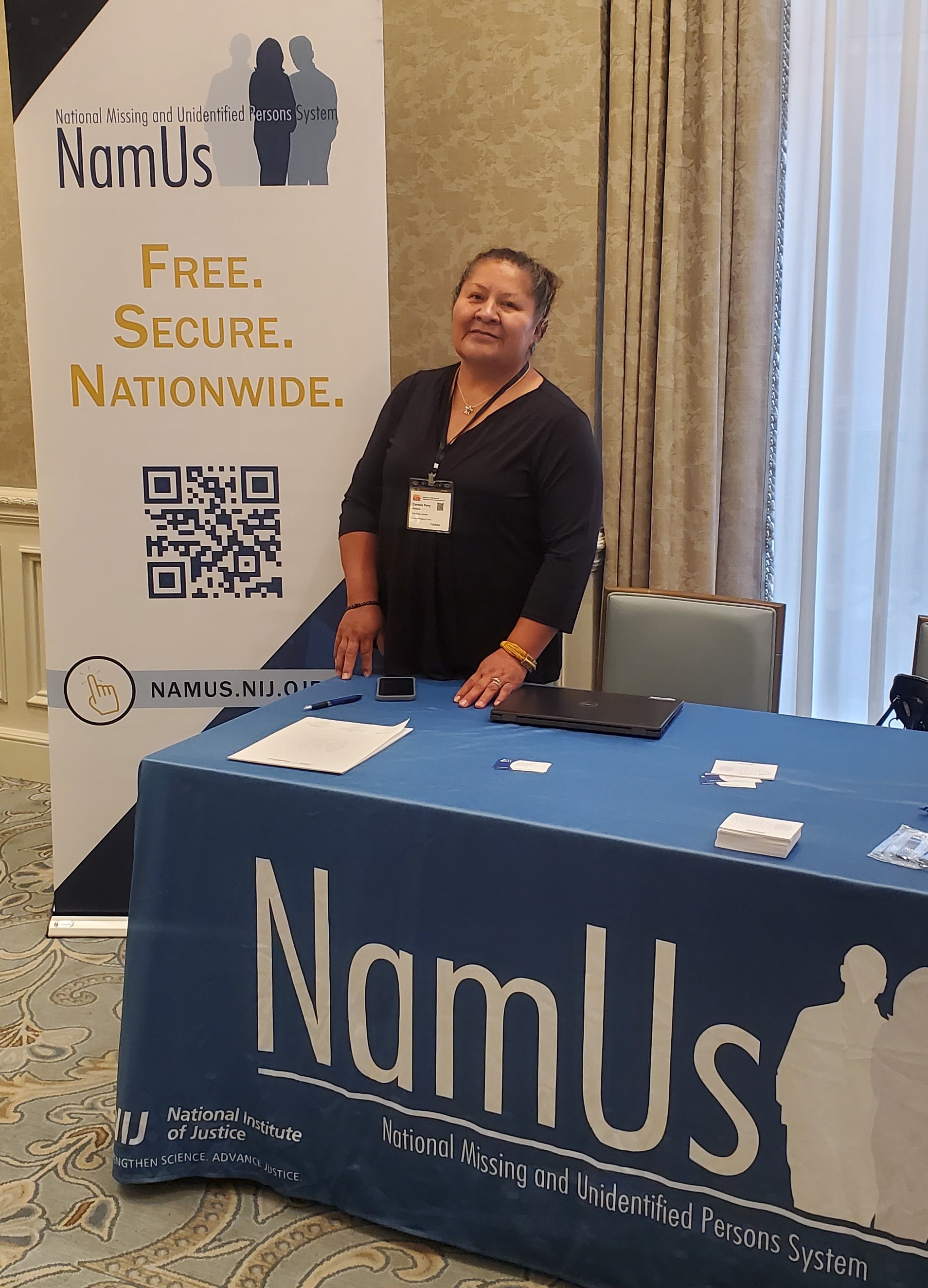May 5th is the National Day of Awareness for Missing and Murdered Indigenous Women and Girls. NamUs is dedicated to raising awareness of the thousands of Indigenous women, girls, and people who have gone missing or have been murdered in the United States. As we observe this day, NamUs sat down with our own Tribal Liaison, Cornelia Perry, Dine’ of the Navajo Nation.
Ms. Perry joined NamUs in 2021 after a long and successful career as a criminal investigator in the Chinle district of the Navajo Nation. She joined the Chinle Police Department in 2004 and eventually spearheaded Chinle’s first missing persons program, cataloguing as many missing persons cases as she could find.
Early on, she was the only NamUs user in the Navajo Nation, so she took it upon herself to dive in and start working these cases. And it didn’t stop there. Once she finished cataloguing the cases in Chinle, she moved to another district. And another. And another. After months of traveling from district to district, entering dozens of cases into the database, and doing everything she could to support missing persons investigations, Ms. Perry wanted to make changes on a greater scale.
Ms. Perry has a personal connection to missing persons casework, and it continues to drive her efforts in the criminal justice field. When her nephew was reported missing three years ago, she worked tirelessly to investigate the case and bring resolution to her family.
It’s that same passion that keeps her committed to her work. When she saw the Tribal Liaison position open with NamUs, she was thrilled about the opportunity to join the program. “When I was using the system, I always thought to myself ‘Gosh, I wish I could work for NamUs.’ And then it happened!”
As excited as we were to have her join the program, we knew how much work she had in front of her. “It’s an uphill battle,” says Ms. Perry, “Some tribal agencies are hesitant to share information outside their communities. Many districts don’t communicate with each other.” To fix this, she’s bringing NamUs to them.
As NamUs Tribal Liaison, her role includes traveling to tribal agencies and working with them to register in NamUs. This brings the program’s free resources to investigate missing and unidentified persons cases to U.S. tribes and sovereign nations. “Not a lot of district-to-district communication happens on its own. I see NamUs as a way for us to bridge the gap between districts and eventually nations,” Ms. Perry remarks.
But that’s just one part of her role. In fact, one of her most passionate efforts involves recruiting and training new professional users. Ms. Perry is working with agencies across the Navajo Nation to train new recruits and incorporate NamUs into their standard operating procedures. Her plans don’t stop with the Navajo Nation, though. She always asks herself “How else can I help my Nation utilize the system? When I’m finished here, how can I help other tribal agencies as well?”
Eventually, she wants to integrate NamUs training materials into tribal police academies across the country. She says, “I want to see officers, detectives, and investigators using the system, and I want to see new officers, detectives, and investigators using it 10 years from now, too.”
Ms. Perry’s strength, resiliency, and passion for justice keeps her moving forward. As we were wrapping up our interview, she said “I really hope I’m making a difference.” A 20% increase in Tribal case entries since 2021 suggests that she is.


